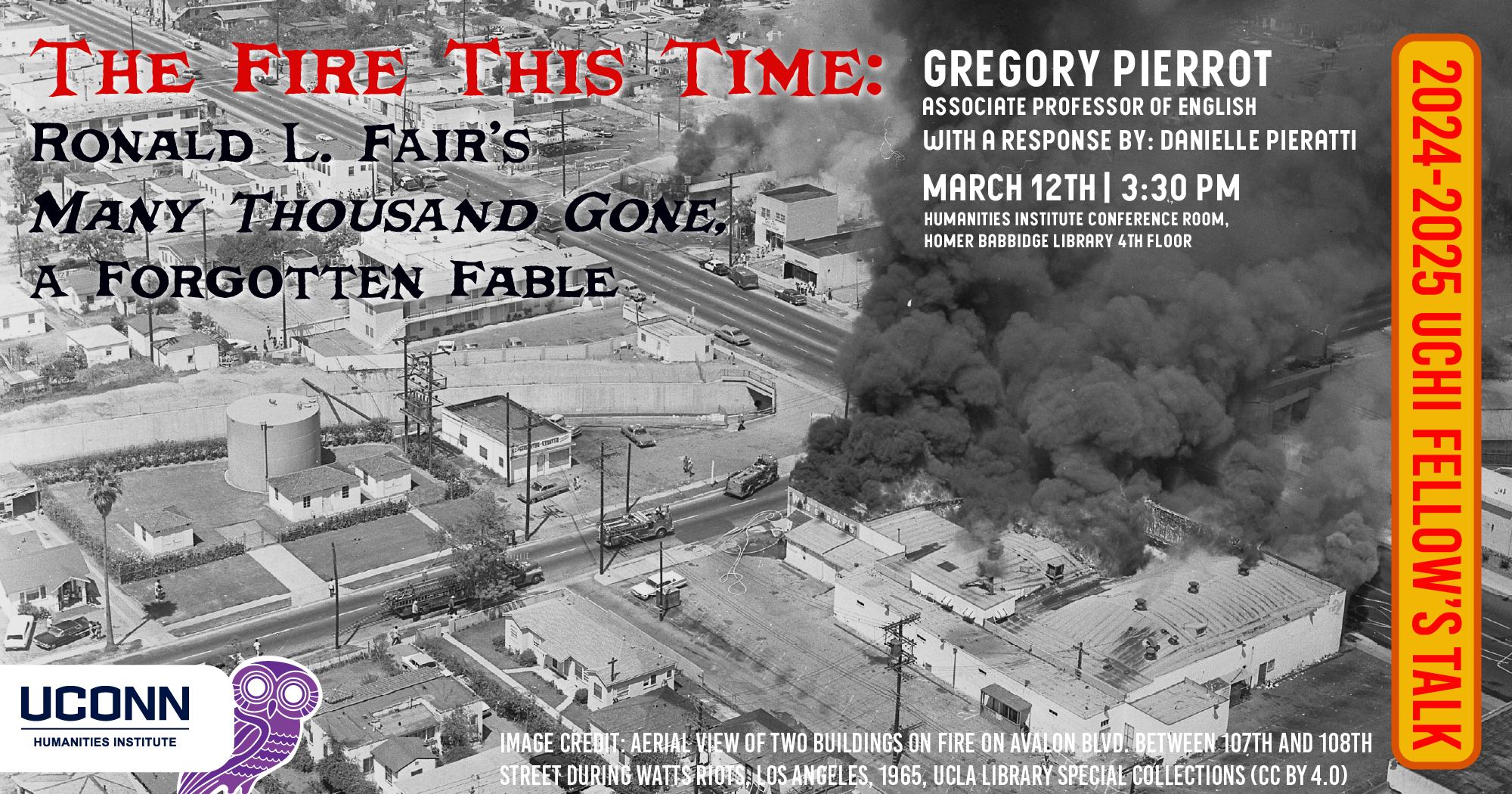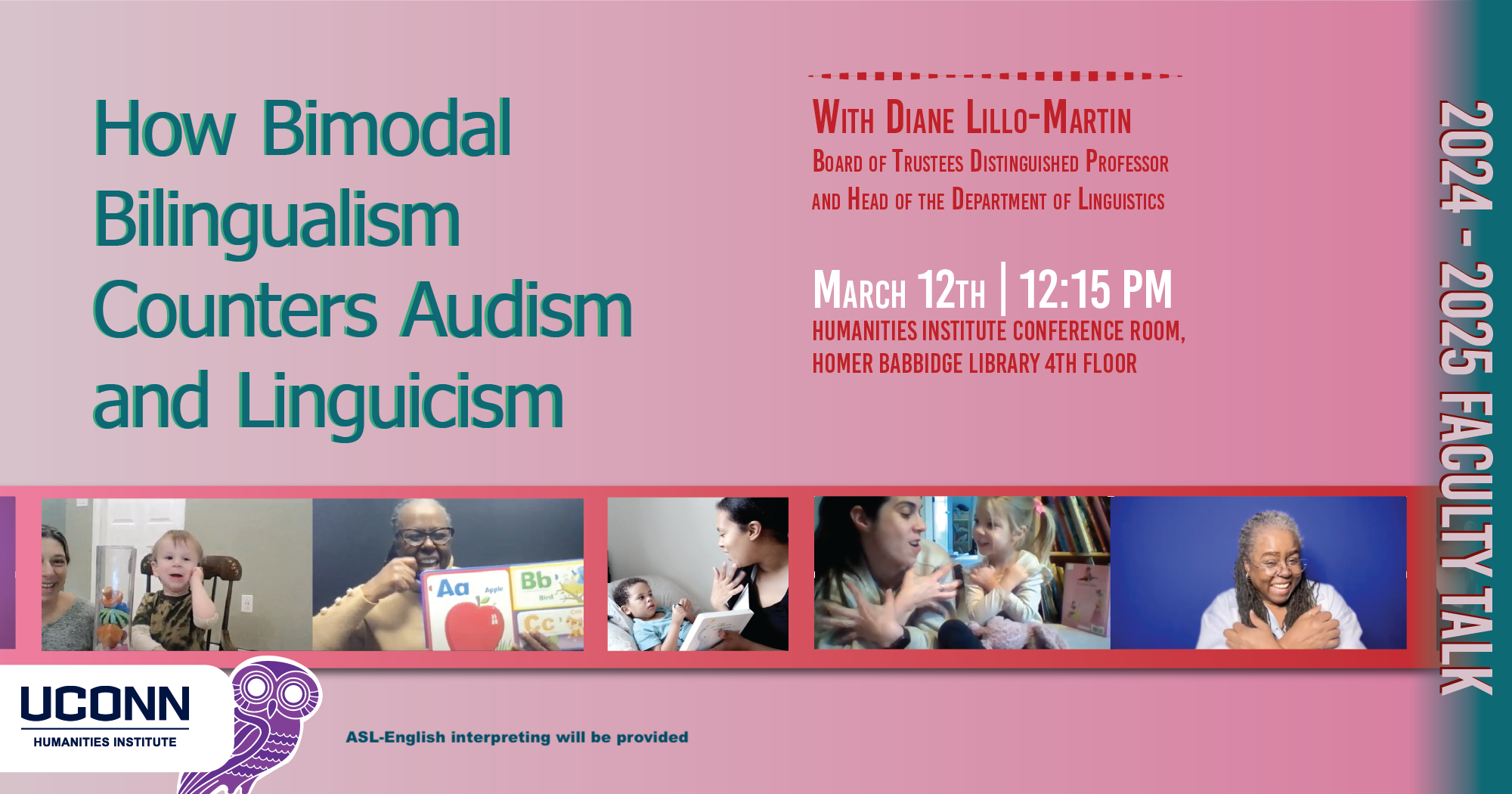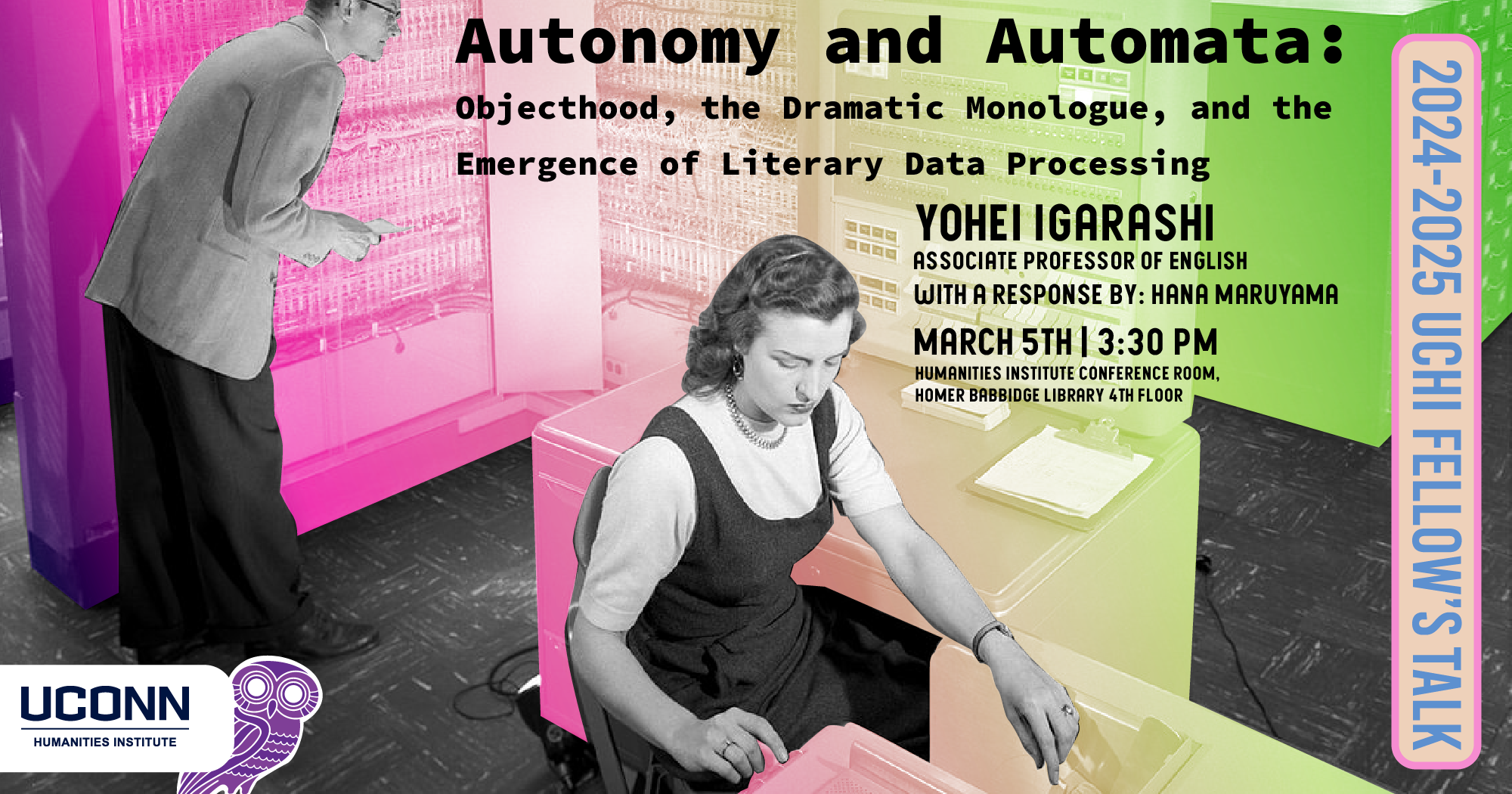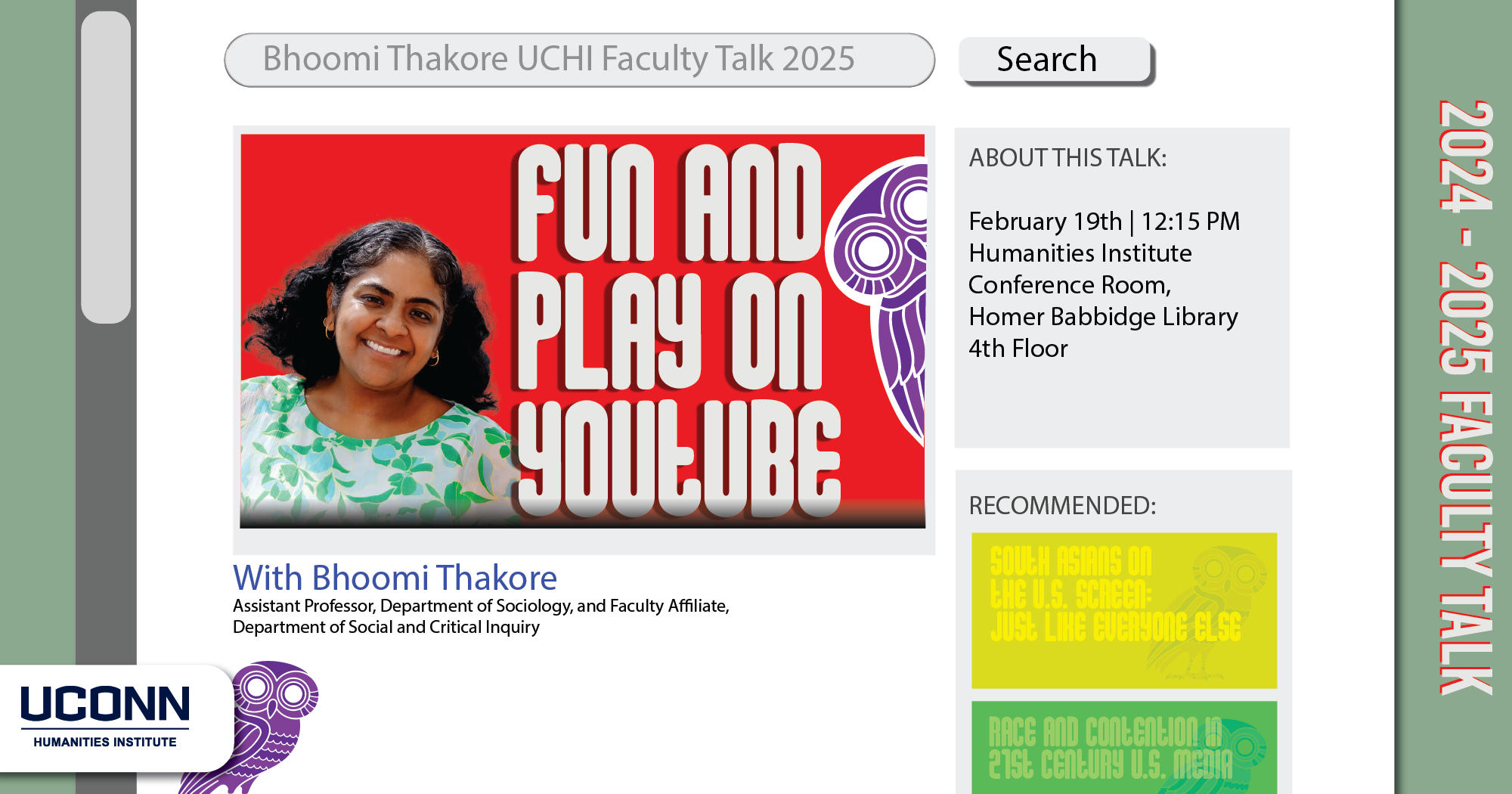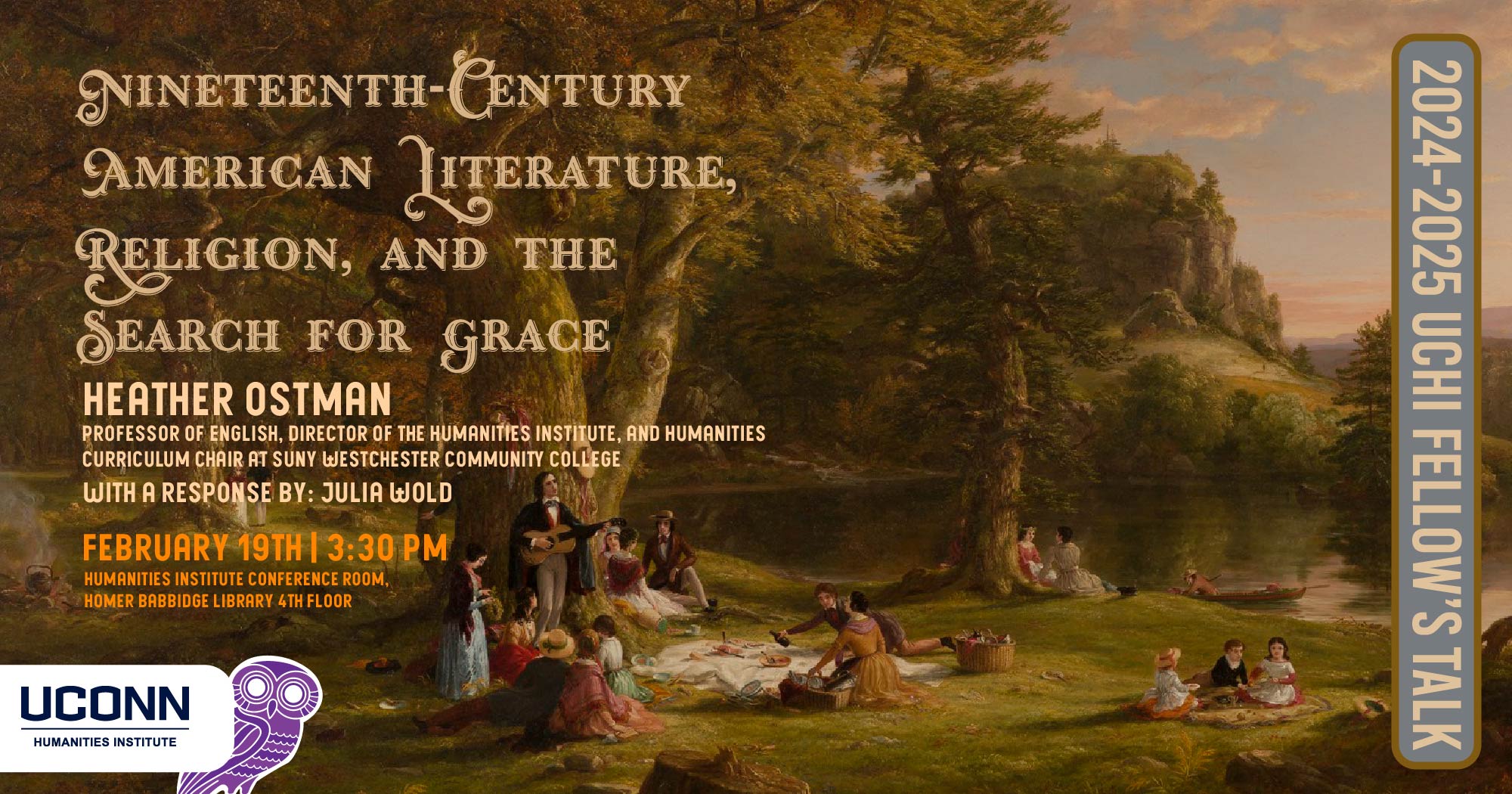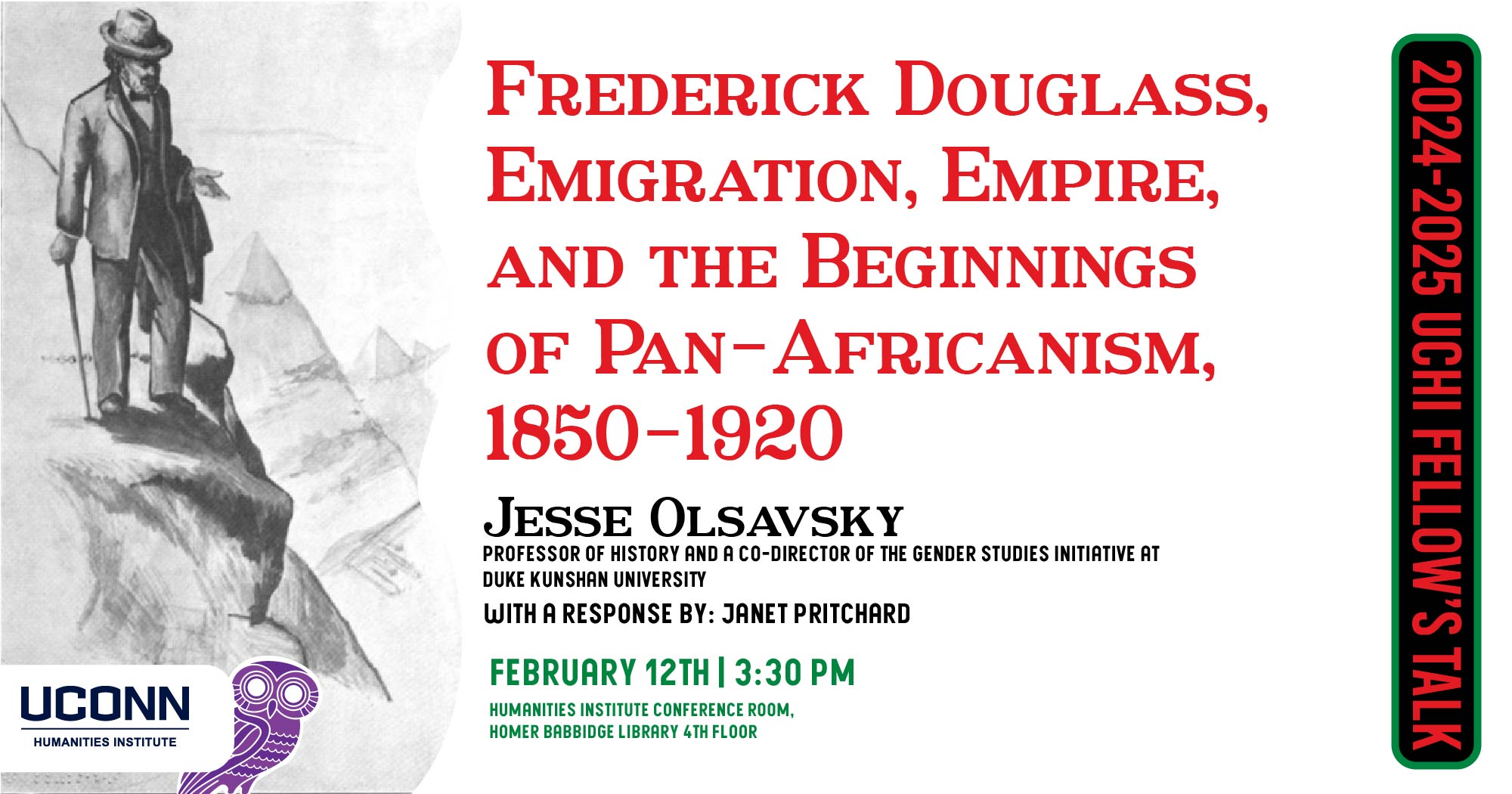The deadline to submit applications for the CLAS and UCHI Undergraduate Humanities Research Fellowship has been extended to March 14, 2025.
The fellowship supports a year-long research project supervised by a UConn faculty member. Students receive mentorship support, a $2000 scholarship, a desk at the Humanities Institute, and 6 credits through the successful completion of two independent studies. The project should explore big questions about human society and culture and should lead to an original contribution to your area of study.
Learn more about the fellowship program in this video.
For details on eligibility and how to apply, please see the call for applications, also appended below.
The UConn Humanities Institute (UCHI) and the College of Liberal Arts and Sciences (CLAS) are excited to offer year-long fellowships for undergraduate students pursuing innovative research in the humanities.
The fellowship supports a year-long research project supervised by a UConn faculty member. The project should explore big questions about human society and culture and should lead to an original contribution to your area of study. The exact parameters (length, format, etc) will be set by your faculty advisor. Depending on your major and your academic and professional plans, your project may consist of a scholarly research project or a creative product with a significant research component. At the end of the year, students will submit the final project to their faculty advisor, UCHI, and CLAS.
The project should ask questions or explore issues and ideas that feel urgent and exciting to you. We highly encourage proposals for projects that use methods, ideas, and approaches from more than one discipline.
Fellows will be welcomed as members of the Humanities Institute, a lively community of accomplished faculty and graduate student scholars conducting advanced research in the humanities. In addition to immersion in this intellectual community, the fellowship offers:
- A $2,000 scholarship
- A desk/work area at UCHI, located conveniently in Homer Babbidge Library for conducting research
- Bi-weekly check-in meetings
- A public presentation about the project at UCHI in the spring semester
- Participation at UCHI’s events (for example, presentations by visiting scholars and artists) and special opportunities to meet with such visiting speakers
- A field trip or cultural excursion (for example, a visit to a museum or archive) to be announced during the year
- The opportunity to present your work at the Humanities Undergraduate Research Symposium
- 6 credits for the academic year, through the successful completion of one 3-credit independent study each semester with the UConn faculty member supervising your project
- (For non-Honors students) Admission into the Honors Program through the successful completion of this program, if other Honors admissions criteria are met.
Eligibility
Fellowship applicants should be rising sophomores or rising juniors in good academic standing (that is, students who will be sophomores or juniors in Fall 2025). Rising seniors are also eligible to apply, but preference will be given to students earlier in their degrees. Please note that students who applied in previous years and did not receive a fellowship are eligible to apply again.
Fellows from all campuses are welcome. Although the fellowship includes bi-weekly meetings on the Storrs campus, accommodations will be made for fellows unable to attend those meetings in person. However, the public presentation in the spring semester will take place on the Storrs campus.
The proposed project should be humanities research. Broadly speaking, the “humanities” means the study of human society and culture. Humanities majors or minors typically include but are not limited to: Africana Studies; American Studies; Anthropology; Art and Art History; Asian and Asian American Studies; English; History; Human Rights; Journalism; Latino and Latin American Studies; Philosophy; Sociology; Women’s, Gender and Sexuality Studies. If you aren’t sure if your project is humanistic, please email uchi@uconn.edu.
Fellows should check individually with the Office of Student Financial Aid Services to ensure that they are eligible to accept the scholarship.
Application
- A Word document with answers to the following questions:
- What is your project’s title?
- What big question(s) is your project asking, and why are those questions important to you, your community, and society? (maximum 300 words)
- What is your plan for the project? What work will you do to try to answer its questions? (maximum 300 words)
- How do you think working on this project contributes to your own goals? (maximum 200 words)
- Optional question: Are there additional factors in your background or life experience that would help you benefit from this opportunity? Discuss social, economic, educational, or other obstacles, as appropriate. (maximum 300 words)
- A writing sample of your best research and writing (for example, your best final paper).
- One letter of recommendation from a UConn faculty member that also includes their willingness to supervise the project over the course of an academic year. (The faculty member should email their letter directly to uchi@uconn.edu. There’s no need to wait until the letter is complete to submit the rest of your application.)
- An unofficial transcript.
Applications for the 2025-26 fellowship year must be submitted by February 28, 2025 March 14, 2025.
All questions and application materials can be sent to uchi@uconn.edu.
Please know while we will make every effort to review submissions as soon as possible, the materials you submit may not be reviewed immediately upon receipt. Please note that all University employees are mandated reporters of child abuse or child neglect. In addition, UConn employees have responsibilities to report to the Office of Institutional Equity student disclosures of sexual assault and related interpersonal violence; any information you submit in this application is subject to UConn reporting policies. If you feel you need more immediate assistance or support, we encourage you to reach out to the Dean of Students Office and/or Student Health and Wellness- Mental Health. In addition, if you have concerns related to sexual harassment, sexual assault, intimate partner violence and/or stalking, we encourage you to review the resources and reporting options available at: https://titleix.uconn.edu
